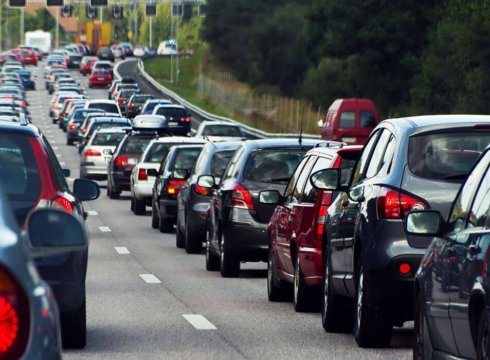SUMMARY
Indian Government Aims To Reduce Private Car Ownership And Curb Traffic Congestion
Inc42 Daily Brief
Stay Ahead With Daily News & Analysis on India’s Tech & Startup Economy
The Indian government, in its efforts to curb the growing traffic congestion, is examining the use of private vehicles as taxis for car pooling.
India’s federal think-tank, led by PM Narendra Modi, has partnered with cab sharing companies including US-based Uber, “to assess the economic and environmental impact of using private cars as taxis.”
Uber is already utilising private cars for ride-sharing services in Australia and Singapore but has faced criticism from drivers in parts of North America.
During a three-month study, the Indian government will look upon the ways to reduce private car ownership in the country, in line with the insurance, regulatory, tax, and safety implications.
The study is still in the early phase and aims to frame a clear set of guidelines. These guidelines will help avoid a tussle between commercial and private shared taxi owners and eradicate the possibility of any ambiguity in smooth functionality.
As stated by an Uber spokesperson to Reuters, “We are engaging with a range of stakeholders in India about the best way to realise this vision.”
Private Vehicles In Ride Sharing: Why The Push Now
The Indian government’s decision may bring its own set of opposition from different communities. First, from the existing cab drivers who have given a hefty fee to obtain a commercial driving license. Second, the car makers in India like Tata Motors, Maruti Suzuki, Hyundai Motors etc. whose car sale ratio will get impacted.
However, considering the current climate state of the country, taking effective measures is need of the hour.
As per a report shared by the International Energy Agency (IEA) in June 2016, it is expected that passenger car ownership in India will grow by 775% over the next 24 years. “In the new policies scenario, passenger car ownership grows from less than 20 vehicles per 1,000 inhabitants today to 175 cars per 1,000 people in 2040, and overall road passenger vehicle activity increases more than six-times,” stated the above report.
On one hand, this is a sign of economic growth and a number of opportunities for the global car makers considering India to be a potential vehicle market in coming times. However, on the other hand, it is an alarming development from India’s overall climate point of view.
As per the latest reports, the carbon emission in India grew over 5% in 2015, even as global carbon emissions remained stable that year. Also, Climate Action Tracker organisation in its May 2017 report has termed India’s effort to reduce global warming and reach its set targets under Paris Trade Agreement as ‘Medium.’
The Indian government has taken a number of initiatives to turn towards renewable energy sources for its power requirements. Earlier, the Supreme Court banned all commercial non-CNG cabs in Delhi NCR with effect from May 1, 2016 to curb air pollution. Prior to that in January 2016, Delhi CM Arvind Kejriwal implemented the odd-even formula in New Delhi between January 1 and January 15, 2016. Only odd or even numbers of cars were allowed on the road, depending on the date.
Recently, in May 2017, NITI Aayog also came up with a 15-year roadmap for transforming vehicle use. As per a report released by NITI Aayog, “India could save as much as $60 Bn in energy costs by 2030 and one gigatonne of carbon emissions between 2017 and 2030 by adopting more electric and shared vehicles.” India is also looking to sell only electric cars by 2030. However, this initiative comes with a big hurdle of establishing the infrastructure to facilitate smooth operations of electric cars, like setting up charging stations across the nation, etc.
(The development was reported by Reuters.)
Note: We at Inc42 take our ethics very seriously. More information about it can be found here.


